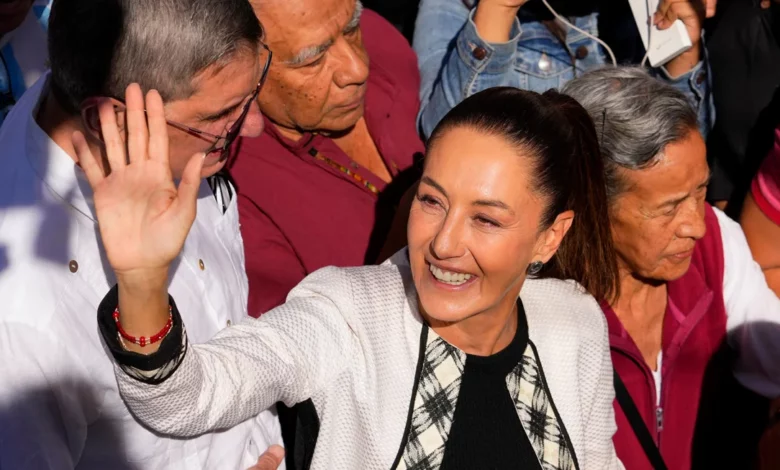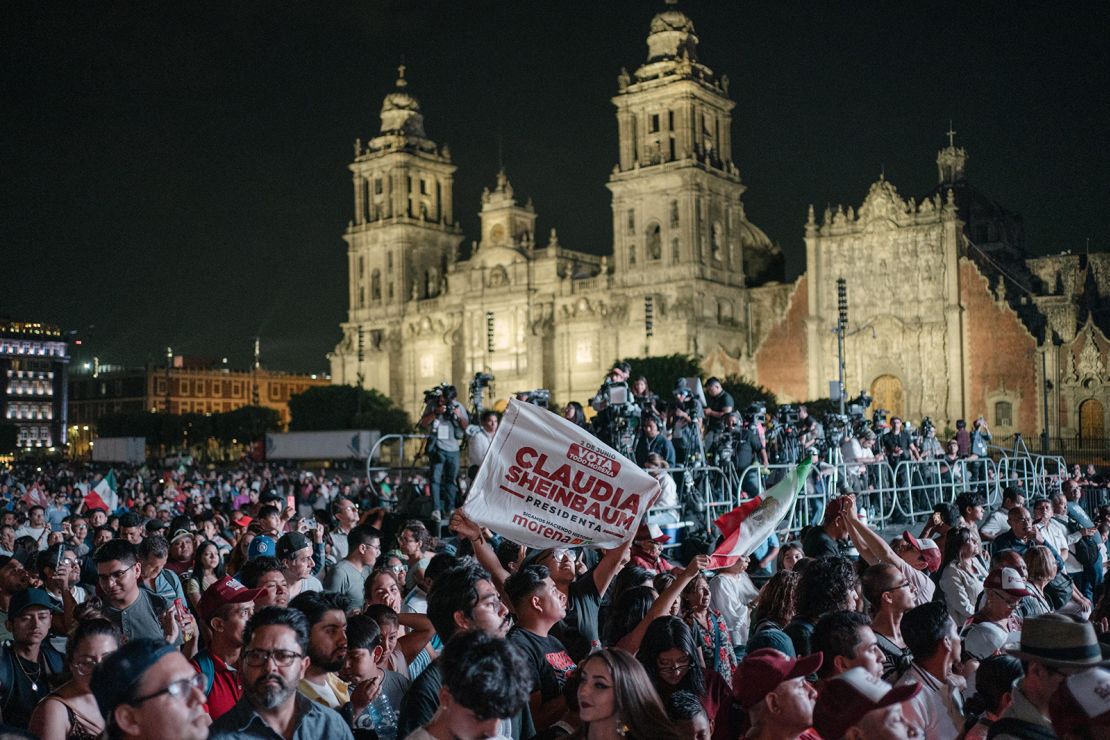
Mexico is set to elect its first female president, with preliminary results showing Claudia Sheinbaum, Mexico City’s former mayor and climate scientist, is on track to win the country’s largest election in history.
Sheinbaum has won between 58.3 percent and 60.7 percent of the vote, according to what is known as Quick Count, an exercise that the National Electoral Institute (INE) carries out based on a statistical sample of ballots from polling stations.
The 61-year-old rode the wave of popularity of her longtime political ally, the outgoing leftist Mexican President Andrés Manuel López Obrador, and their Morena party.
Not only is she set to be Mexico’s first female president, Sheinbaum will also be the country’s first leader of Jewish heritage, although she rarely speaks publicly about her personal background and has governed as a secular leftist.
Trailing Sheinbaum is opposition candidate Xóchitl Gálvez, backed by a coalition of the National Action (PAN), Institutional Revolutionary (PRI) and Democratic Revolution (PRD) parties, with between 26.6 percent and 28.6 percent of the votes. In third place is the Citizens’ Movement candidate, Jorge Álvarez Máynez, with between 9.9 percent and 10.8 percent of the votes.
According to the quick count results, participation in the presidential election was between 58.9 percent and 61.7 percent of the electorate of nearly 100 million people.
Sheinbaum’s projected win is a remarkable moment for a country that is a world leader when it comes to gender equality in elected office, a position it cemented in 2019 with constitutional reform. It outflanks several countries in terms of women’s parliamentary representation. Yet Mexico remains a dangerous place to be a woman: it has sky-high femicide rates with around 10 women murdered in Mexico every day.

Sheinbaum ran Mexico’s most important city for five years until her resignation last June to run for the presidency. She is also the co-author of a Nobel-winning Intergovernmental Panel on Climate Change report and is married to Jesús María Tarriba Unger.
She is seen as a continuation of the status quo left by López Obrador, whose social welfare programs boosted the Morena party’s popularity and had a positive impact on the lives of poorer Mexicans.
Sheinbaum has pledged to continue her predecessor’s policies, including a pension for all senior citizens, scholarships for more than 12 million students and free fertilizers for small farm owners, but has rejected criticism of her close political alignment with López Obrador.
Immense violence in the country, which has seen dozens of political candidates or applicants killed in the past year and cartels extend their grip through Mexico, appears to have been a top concern for voters.
And while the murder rate fell in Mexico between 2019 and 2022, in absolute numbers the country is still reeling from historically high levels of around 30,000 homicides each year. The true number is likely higher, experts say.
Sheinbaum has been coy about her security proposals but has pointed to her record as Mexico City mayor, when according to her team she improved the police force’s working conditions and intelligence-gathering abilities.
One big challenge for her will be convincing voters that she can end the culture of impunity in Mexico, where around 95 percent of all crimes nationwide went unsolved in 2022, according to think tank Mexico Evalua.
Sunday’s poll is the largest election in the country’s history. More than 98 million voters are registered to cast a ballot, and 1.4 million Mexicans are eligible to vote abroad. In addition to the presidency, more than 20,000 positions are being contested by an estimated 70,000 candidates vying to become senators, mayors and governors.
After the final results come in, the Electoral Tribunal of the Judicial Branch of the Federation (TEPJF) must receive and analyze any possible challenges to the process, as well as qualify the presidential election no later than September 6. If the court validates the election, Sheinbaum will take office on October 1. Her term will last six years, from 2024 to 2030.
This is a developing story and will be updated.




